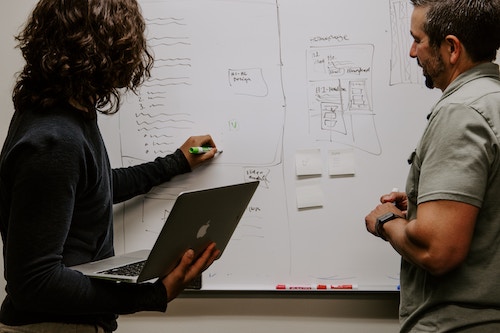Patrick Lencioni’s Five Behaviors of a Cohesive Team™ has become the most widely used process for effective team development globally. The Five Behaviors approach builds effective, high performance teams based on a hierarchical model of vulnerability- based trust, engaging in healthy conflict, team commitment, accountability, and focusing on collective results.
It’s one thing to understand how individuals best work together to achieve shared goals and how high performance teams function. It’s quite another thing to understand how you fit into a team dynamic — how your personal strengths contribute to (or weaknesses prevent you from) being a productive contributor and part of a strong, healthy, cohesive team.
“No one tells you how to be a good teammate,” said Maren Perry, president of Arden Coaching. “It’s a critical piece of the puzzle — based on your individual characteristics, how do you think, react, and behave in various team situations? How do team dynamics affect you — and how do you impact your team’s performance?”
Make the Five Behaviors Personal
Shawna had attended a series of workshops covering each of Lencioni’s Five Behaviors and had a strong grasp of the elements that went into creating successful, cohesive teams. However, as an active member of several teams, she struggled to apply the concepts when dealing with her own feelings and behaviors. Fortunately, Shawna’s company went one step further, offering executive coaching and a Personal Development tool built on the Five Behaviors approach.
According to Perry, the Five Behaviors personal development tool applies assessment results from the EverythingDiSC® model and provides a powerful resource to help you understand what you bring to your teams, and where you can keep growing.
“Understanding your behaviors and then creating an action-based plan to modify your levels of awareness, patterns of thinking, and behavior drives real change. Based on your personal goals, the changes will have a profoundly positive impact on your effectiveness as a team member and leader.”
Shawna Explores Her Behaviors Related to Healthy Conflict
Shawna believed that she generally worked well with healthy conflict. Yet there were often times when she felt uncomfortable and frustrated with her feelings and behavior.
Engaging in the personal development process and working with her executive coach, Shawna learned how she personally responds and reacts to conflict, setting the stage for important changes. Shawna’s summary notes, in part, read:
Finding: I am an outgoing, optimistic, and expressive person. Relationships are very important to me.
Finding: Because I tend to be expressive, I am comfortable speaking up to make sure my teammates hear and consider my opinions and feelings.
Finding: Given the value I place on relationships and connecting with my teammates, I am able to draw out their opinions and help create an environment where people feel encouraged to share their ideas.
To consider and work on: I may sometimes find it difficult to call attention to differences because I fear it could damage the relationships I value so highly.
To consider and work on: Because I want to keep things positive and avoid hurting a teammate’s feelings, I sometimes keep silent when I disagree. That can keep bad ideas alive longer than they should.
To consider and work on: I value expression, so I often become distressed (overly sensitive?) if I believe people aren’t really listening to what I say or are keeping me from expressing myself.
Finding: I also tend to be more open and receptive to the ideas of others — rather than stubbornly holding firm with my own opinion.
To consider and work on: My openness to others’ ideas sometimes causes me to set aside my ideas too quickly — I then second-guess a team decision later on, rather than committing fully to it.
To consider and work on: I am by nature positive and optimistic. I am frustrated easily by teammates who squelch enthusiasm for ideas by being (in my view) overly critical or judgmental.
Shawna worked with her executive coach on the other four behaviors in the same way. This work helped Shawna apply the Five Behaviors of a Cohesive Team directly to her own work and helped her focus on her mindset and behavioral change — making her a stronger teammate and team leader.
Contact Arden Coaching for your (or your team’s) Personal Development Assessments and learn more about executive coaching and developing high performance teams at info@ardencoaching.com or 646.684.3777.

